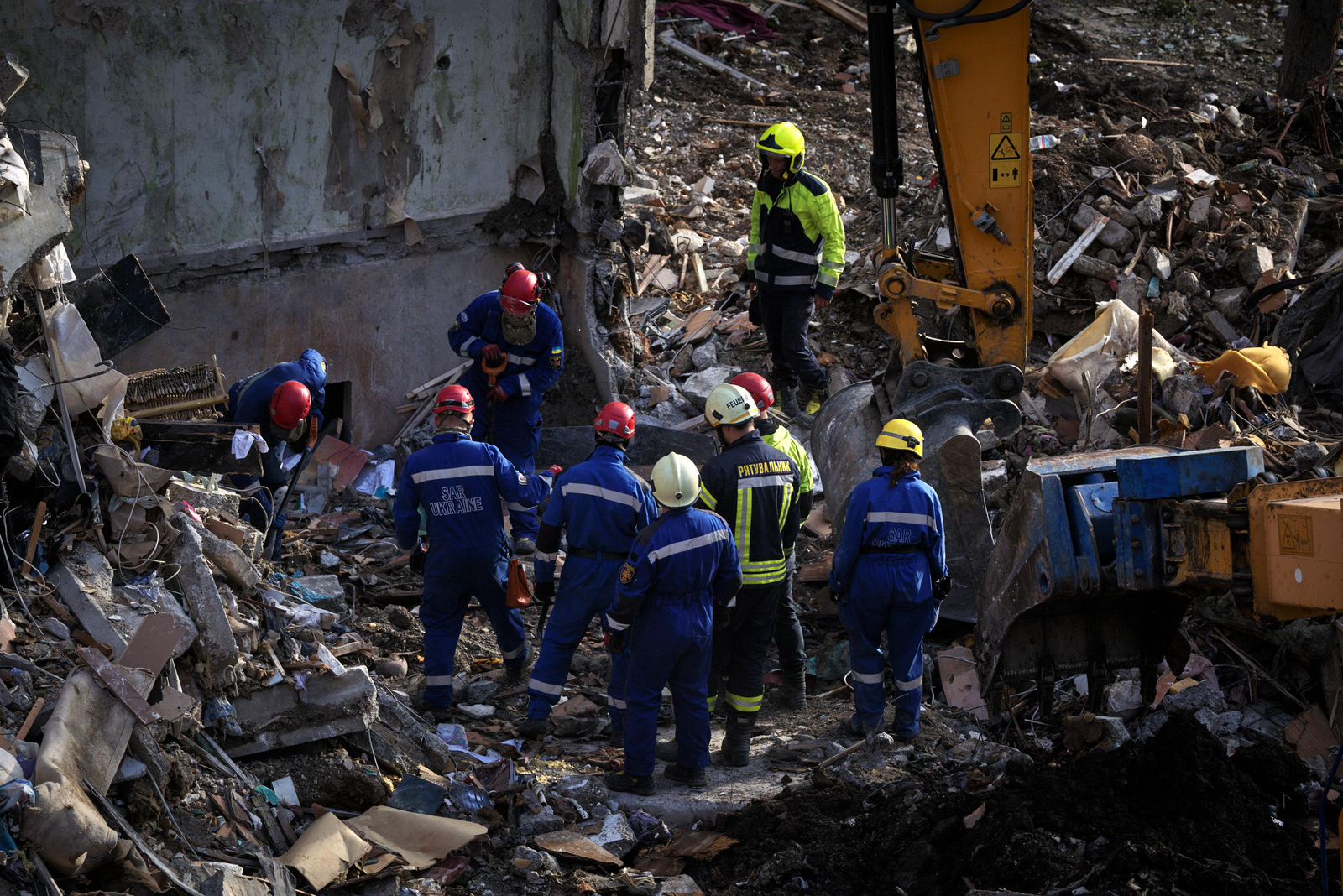

A new international tribunal has been created to hold senior political and
military leaders accountable for one of the most serious violations of
international law: the crime of aggression.
This tribunal, known as the Special Tribunal for the Crime of Aggression
against Ukraine, is being established under the framework of the Council of
Europe.
The tribunal specifically targets those responsible for the decision to
launch Russia’s full-scale invasion of Ukraine in February 2022.
It will focus on holding high-level officials accountable for planning,
initiating, or executing a war of aggression, something no other international
court currently has the mandate to do.
"The Special Tribunal will fill the legal gap that the International
Criminal Court (ICC) cannot address due to jurisdictional limits," the
Council of Europe said.
Although the ICC is actively investigating war crimes and crimes against
humanity in Ukraine, it lacks the authority to prosecute the crime of
aggression in this case.
Unlike other war-related crimes, the crime of aggression is a “leadership
crime.”
It concerns individuals in positions of power including presidents, prime
ministers and senior military officials, who were directly involved in
decisions to go to war.
According to its statute, the Special Tribunal will work in cooperation with
the ICC. If a suspect is already in ICC custody, its proceedings will take
priority.
The decision to establish the tribunal comes after years of legal and
political groundwork.
The idea originated with Ukrainian legal experts and gained traction
following a 2022 article by renowned international lawyer Philippe Sands.
The Parliamentary Assembly of the Council of Europe became the first
international body to call for its creation in April 2022.
In March 2025, a group of legal experts from around 40 states known as the
Core Group finalized the legal instruments required to set up the tribunal.
These were approved during a ministerial meeting in Lviv on May 9, 2025.
On June 25, 2025, Ukraine and the Council of Europe signed a bilateral
agreement in Strasbourg formally establishing the tribunal.
The tribunal’s headquarters have not yet been disclosed, but its location
will be confirmed in the coming months.
It will begin operations as soon as sufficient political and financial
backing is secured through an Enlarged Partial Agreement among supporting
states.
Oversight will be provided by a Management Committee made up of Members and
Associate Members of this agreement.
Judges and prosecutors will be elected through a rigorous selection process,
with nominations evaluated by an independent advisory panel.
They will serve for nine years, while the Prosecutor and Deputy Prosecutors
will have seven-year terms.
The tribunal will follow internationally recognised legal standards.
Trials can be conducted in absentia if a suspect cannot be brought to court
and all efforts to secure their appearance fail.
However, such trials will include legal safeguards, including the right to
legal representation and the option for a retrial if the suspect later appears.
Support for the tribunal has come from across Europe and beyond.
The European Union has been a vocal advocate, assisting with political
coordination and helping to establish the International Centre for the
Prosecution of the Crime of Aggression against Ukraine (ICPA) in The Hague.
That centre played a key role in gathering evidence and legal research ahead
of the tribunal's formation.
The tribunal is expected to investigate not only Russian leaders but
potentially those from other states if their involvement in the aggression is
proven.
This includes individuals from Belarus or even North Korea.
But questions remain about the feasibility of bringing senior Russian
leaders to trial.
Under international law, sitting Heads of State, Heads of Government and
Foreign Ministers, often referred to as the “troika” enjoy immunity.
The tribunal can only prosecute these individuals if they are no longer in
power or if their immunity is lifted.
Still, the tribunal can proceed with investigations and issue indictments.
"International law is evolving, and personal immunity is not a carte
blanche for impunity," the Council of Europe said.
The tribunal represents a broader commitment to justice and the rule of law.
"It reaffirms the fundamental principle that war must not be waged as a
tool of state policy."
It is seen as a critical step to deter future acts of aggression, uphold
international legal norms, and offer Ukraine a clear path to justice that no
existing court can currently provide.
Although its practical impact will depend on the political will of states to
cooperate, the Special Tribunal is expected to serve as a powerful symbol and
tool of accountability in the face of illegal war-making.
Once operational, it will help ensure that those responsible for launching a
war of aggression do not escape justice.













